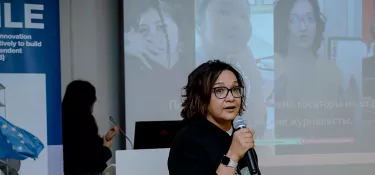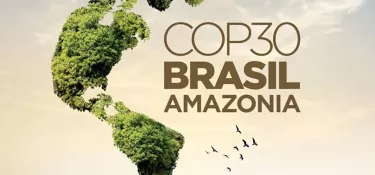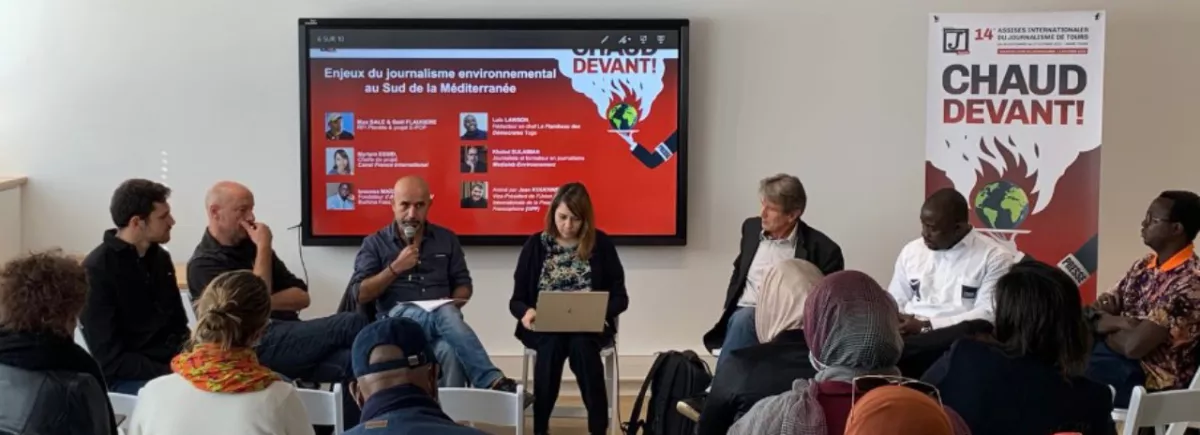
Environmental journalism in the southern Mediterranean
Related project
MediaLab EnvironmentCFI is publishing a study on the role and place of environmental journalism in Morocco, Algeria, Tunisia, Egypt, Lebanon and Jordan.
These southern Mediterranean countries are directly affected by environmental challenges. Desertification, scarcity of water resources, pollution, coastline deterioration, waste management, polluting production methods, challenges associated with the energy mix and extractivism (shale, renewable energy, nuclear), governance challenges and weak institutions responsible for the environment are all environmental problems facing the Arab world. Yet, ecology does not seem to be a priority either in public opinion, for public authorities or for the media.
There are very few specialist journalists, only a small number of media outlets offer specific environmental coverage and there is no specific teaching on this subject in journalism schools. But this situation is likely to change: the impact of the environment on living, the economy, energy, health and society is making it all the more necessary to cover these environmental challenges so as to develop both individual and collective environmental awareness.
In each of these six North African and Middle Eastern countries, the political context has an instrumental impact on this study into the place and role of environmental journalism.
Media, environment and political context in the six countries under study
Tunisia and Lebanon are characterised by press and association freedoms that are guaranteed in law and practice, and which have fostered the emergence of associations and organisations taking a stand on environmental issues, the development of social movements and activist networks focussing on issues associated with pollution or waste management, and the emergence of information produced on environmental matters.
Lebanon is one of the freest countries in the Arab world. According to Reporters Without Borders, the media in Lebanon have greater freedom than in any other Arab country.
In Tunisia, the freedoms of expression and association have been globally guaranteed since 2011, enabling the birth of a large network of associations throughout Tunisia focused on environmental issues and facilitating the development of multiple environment-based media initiatives.
Morocco, Algeria and Jordan are marked by the existence of self-censorship by journalists due to the lack of press freedom and the absolute control of the authorities over the media. But these nations are also host to wide-scale protest movements calling for greater freedoms and questioning the system in place. In addition, institutional initiatives have been launched to develop environmental information, specifically in Morocco and Algeria.
In Morocco, 2018 saw the signing of a national “media, environment and sustainable development” charter. This aims to strengthen the impact of the national media with a view to tackling the big challenges of environmental protection and sustainable development.
In Algeria, despite the serious deterioration in press freedom, there are initiatives in place to promote the production of environmental content. Both the public and journalists seem to be aware of these issues.
In Jordan, hopes of increased press freedom following the Arab Spring were overshadowed by developments in regional politics, particularly the war in Syria and the various conflicts in the region (Palestine, Qatar diplomatic crisis). The authorities instead chose to tighten control over the media, specifically by means of the law on cybercrime, the law on antiterrorism or even the obligation to register by obtaining a licence, including for online media.
Today, Egypt is one of the worst offenders in the world when it comes to freedom of the press. It was described as one of the countries with the highest journalist imprisonment rate in the world in 2019 by the Committee to Protect Journalists. In addition, its government has targeted and closed down critical or independent information bodies and blocked over 500 websites, including journalistic sites.
Media and civil society: interconnections
In these six countries, environmental content is supplemented, depending on the degree of freedom of association, by information from players outside the authoritative media, who use social networks to spread information (blogs, specialist magazines, witness accounts or surveys from militants or environmental information produced in various formats by civil society). However, the interest shown by a population in environmental matters largely depends on the position those issues hold in the media: hence the need to give journalists the opportunity to produce content on these subjects and bring these issues into the journalistic sphere.
The position and characteristics of environmental media content in Morocco, Algeria, Tunisia, Egypt, Lebanon and Jordan have been studied through a quantitative analysis based on a corpus of documents and formats that were then analysed with a view to developing an overview of the situation surrounding environmental journalism in the six countries concerned.
The analysis is based on a corpus of 705 journalistic outputs from Morocco, Algeria, Tunisia, Egypt, Lebanon and Jordan, broken down as follows: 132 items from Morocco, 94 from Algeria, 95 from Tunisia, 46 from Egypt, 107 from Jordan and 274 from Lebanon. These works were generally produced in Arabic and French as shown in figure 1.
Arabic was more commonly used for environmental journalistic content in Lebanon, Egypt and Jordan, while French was favoured in Algeria and Morocco. In Tunisia, coverage of environmental issues is split equally across the two languages.

As shown in figure 2, the large majority of environmental journalistic content in the region was produced by the written press. It should, however, be noted that archive management for radio and television formats in the region is poor, which makes this analysis exercise difficult. The issue of access to (even very recent) archives is a structural problem throughout the countries. Although we were able to access archives for the programme Forum de l’Environnement [Environment Forum] (Radio Zitouna, Tunisia), this was only thanks to the initiative taken by its host in 2019 to film all episodes and broadcast them on a YouTube channel.

One of the generally positive outcomes of our analysis is the originality of journalistic content on environmental matters. As figure 3 shows, the majority of content produced in the six countries is original. In Tunisia and Morocco, the content is almost exclusively original, with very little relaying of dispatches from other news agencies. In Lebanon and Algeria, while use of external dispatches is slightly more frequent, original content is still the rule of thumb.
In Jordan, most content is original, although dispatch use is twice as high as in Algeria and Lebanon. Finally, in Egypt, the use of dispatches from other services is very high and could be due to the constraints associated with the freedom of expression in the country, which encourages media outlets to follow the official line.

When we take a look at the analysis of content type, we can see that the large majority of content is descriptive, especially in Egypt, Jordan and Morocco and, to a lesser extent, in Algeria. This also reconciles with the results on the sources used, which are primarily public authorities in the first three countries above. Quite notably, the descriptive form is used least in Tunisia, where the majority of content is analytical – a journalistic style also frequently used in Lebanon. Interviews are quite common in Lebanon and Algeria, where they are used significantly more than in the other countries. Likewise, opinion content can be found in Lebanon and Tunisia, and to a lesser extent, also in Jordan. Finally, surveys are mainly to be seen in Tunisia. Summing up, there is greater diversity of content types in Tunisia and Lebanon than in the other countries in the region.

Talking about the environment
The three environmental issues most often covered by the media in the region are, in order: pollution, climate change and waste management. The two subjects least often covered are the issues of women and the environment, and desertification. Pollution and climate change receive more media coverage in Algeria, Morocco and Tunisia, while the issue surrounding waste management is seen more in Egypt, Tunisia and Lebanon.
Except for the issue of soil and land, the environmental matters covered are more often the central subject matter of the journalistic piece, rather than a related matter. We can, however, see that the issue of climate change appears relatively more frequently as a related subject compared with other environmental issues.
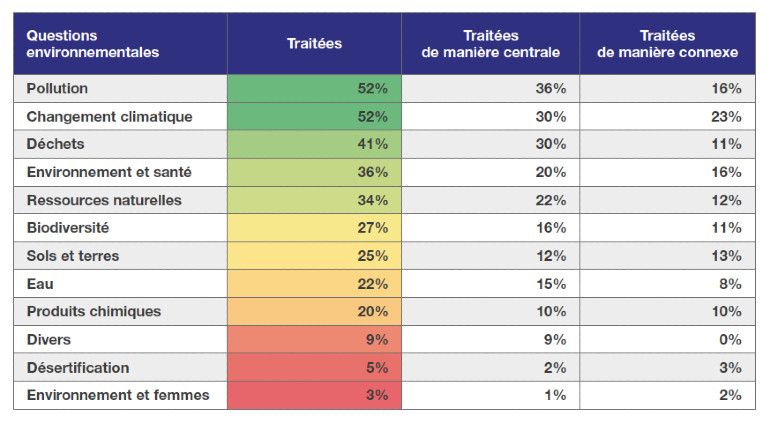
The three sectors that received the most coverage in the region are agriculture, industry and energy. In Tunisia and Egypt, agriculture and industry are key subjects, while in Algeria and Morocco, journalists more often cover the issue of energy. We should note that, despite the poor level of regional coverage of the fishing sector, it does receive the most attention in Tunisia. Issues surrounding migration, tourism and transport receive little coverage compared with the first three sectors mentioned.
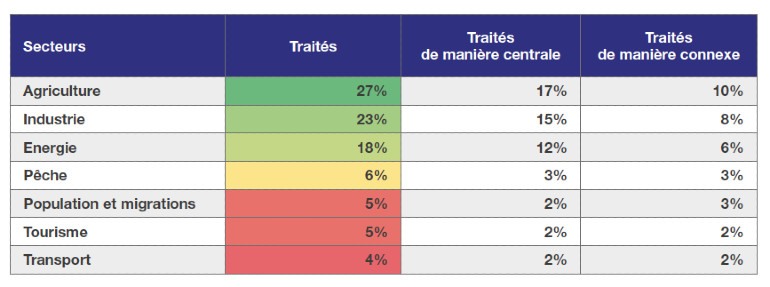
Conclusion
While there is a high level of heterogeneity in the production of environmental content from one country to another, we must note that, with the exception of Algeria, freedom of expression enables environmental journalism to develop and put forward surveys and in-depth analyses. Conversely, in countries where the freedom of expression is not guaranteed, such as Egypt, Jordan and Morocco, while environmental information is indeed present, it tends to be more informative content, drawing no link to the political and economic climate.
The quantitative analysis confirms the low number of journalists specialising in environmental issues. Those that do cover environmental content are mostly general news reporters. Only Lebanon stands out with the majority of its content covered by specialist journalists. Lastly, Tunisia is the only country where a significant proportion of content is created by activists, which confirms the important position of civil society on environmental issues.
Here, civil society has positioned itself more as an awareness-raising player and source of information, while also playing a role as a provider of solutions for the problems facing the public.
